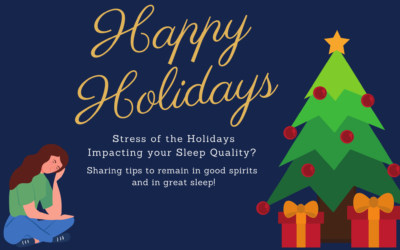The Sleep-Stress Cycle. Are You a Victim?
Stress is a double-edged sword as it pertains to sleep. Evidence suggests not sleeping can lead to irritability, mood swings, fatigue which can further exacerbate psychological or even physical stress. Independent of that, harboring stress from the day’s activities can cause anxiety around bedtime. It can also delay sleep onset and reduce the amount and quality of your sleep. That sounds like a lot to digest, so give it a quick read again. The stress-sleep cycle is real!
Take the Stress out of Sleep:
Allow yourself to enjoy the practice of stress reduction. Experts support that movement is a great way to blow off some steam, boost endorphins, and improve mood. It’s a great opportunity to enjoy nature as well, which can be relaxing in itself. A personal favorite, delegate tasks to others.
In addition, simply asking others for help with a project at work or some chores at home can alleviate mental stress and clear some space for anything other than the stress of another task. Although not entirely mainstream in the west, meditation and mindfulness have long been used as a means to ease psychological stress like anxiety and depression.
Using a sleep diary can help you manage the sleep-stress cycle in a few ways. Getting things off your plate before you go to sleep can support a regular sleep latency, meaning it could help with falling asleep sooner. Furthermore, taking a few minutes to add the interactions, moments, experiences, etc you are grateful for that day, can go a long way in improving your mood before sleep. Going to sleep in a good mood is a great way to prepare for tomorrow.
The sleep-stress cycle resembles closely the age-old question, “Which came first, the chicken or the egg?”. The truth is, finding ways to improve your sleep quality and relieve stress, is the best strategy.
If you or someone you know is experiencing signs and symptoms of obstructive sleep apnea, consult a sleep professional at once. Undiagnosed and untreated sleep apnea can lead to a host of health concerns. Don’t worry, CPAP is not the only therapy option. Contact us to learn more about oral appliance therapy today.



